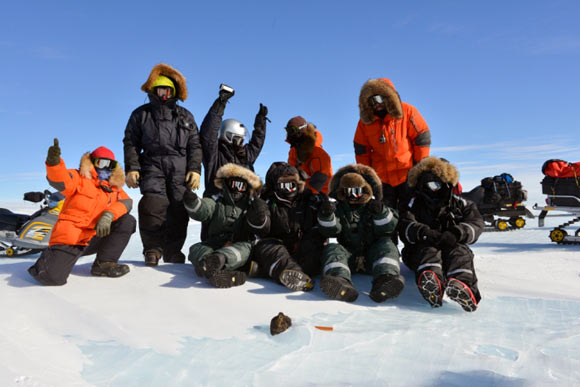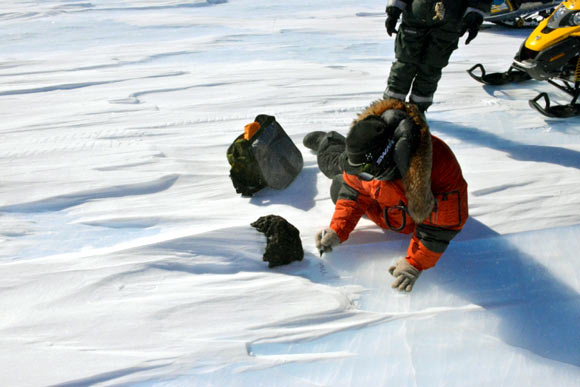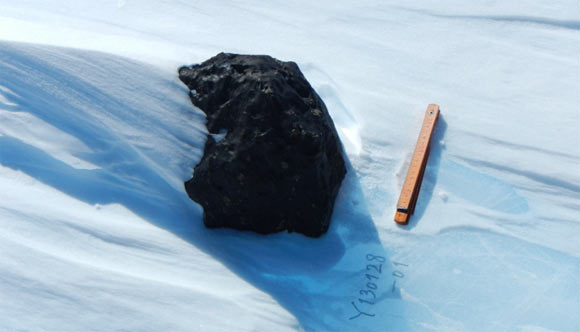Scientists working at Princess Elisabeth Antarctica research station have found an 18 kg chondrite embedded in the East Antarctic ice sheet.

Members of the Belgo-Japanese meteorite team with an 18kg meteorite found during a field trip on the Nansen Ice Field, 140km south of Princess Elisabeth Antarctica (© International Polar Foundation)
The eight members of the SAMBA project were searching for meteorites scattered across the Nansen Ice Field on January 28, 2013, when they found the 18kg ordinary chondrite.
“This meteorite was a very unexpected find for us, not only due to its weight, but because we don’t normally find such large meteorites in Antarctica,” said Dr Vinciane Debaille, a geologist from Université Libre de Bruxelles.
“This is the biggest meteorite found in East Antarctica for 25 years, so it’s a very special discovery for us, only made possible by the existence and location of Princess Elisabeth Antarctica.”

Belgo-Japanese team members examining an 18kg meteorite (© International Polar Foundation / Vinciane Debaille)
Initial field analysis by the scientists suggests that the 18kg meteorite is an ordinary chondrite, the most abundant kind of meteorite. The fusion crust – the meteorite’s outer casing – was eroded, allowing the scientists to inspect the rock underneath. The meteorite is currently undergoing a special thawing process in Japan – to ensure water doesn’t get inside the rock.
“We study meteorites in order to better understand how the solar system formed, how it evolved, how the Earth became such a unique planet in our solar system,” Dr Debaille said.
“This season’s SAMBA mission was a success both in terms of the number and weight of the meteorites we found. Two years ago, we found less than 10kg. This year, we found so much that we had to call the travel agency – because we had 75kg of meteorites to take home”.

An 18kg meteorite found 140km south of Princess Elisabeth Antarctica (© International Polar Foundation / Vinciane Debaille)
“Both Princess Elisabeth Antarctica and the International Polar Foundation are proud to support the research work of the Belgian and Japanese meteorite team,” said expedition leader Alain Hubert.
“By providing solid logistics and field accommodation solutions to scientists working on the ice, we can ensure they can concentrate on what they have come to Antarctica to achieve: unlocking of Nature’s mysteries and broadening understanding of our planet”.
During the expedition, the team discovered 425 meteorites with a total weight of 75 kg.







